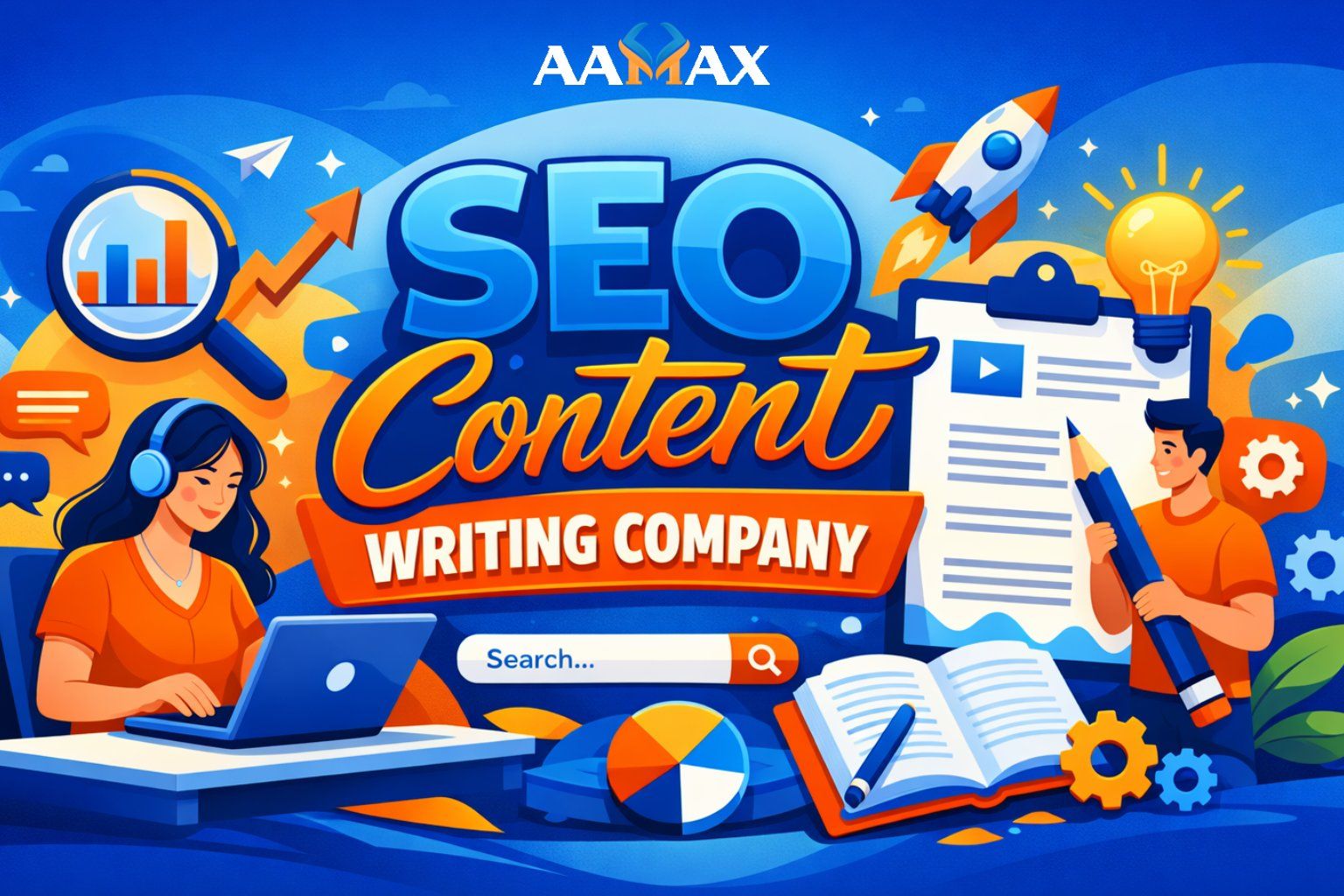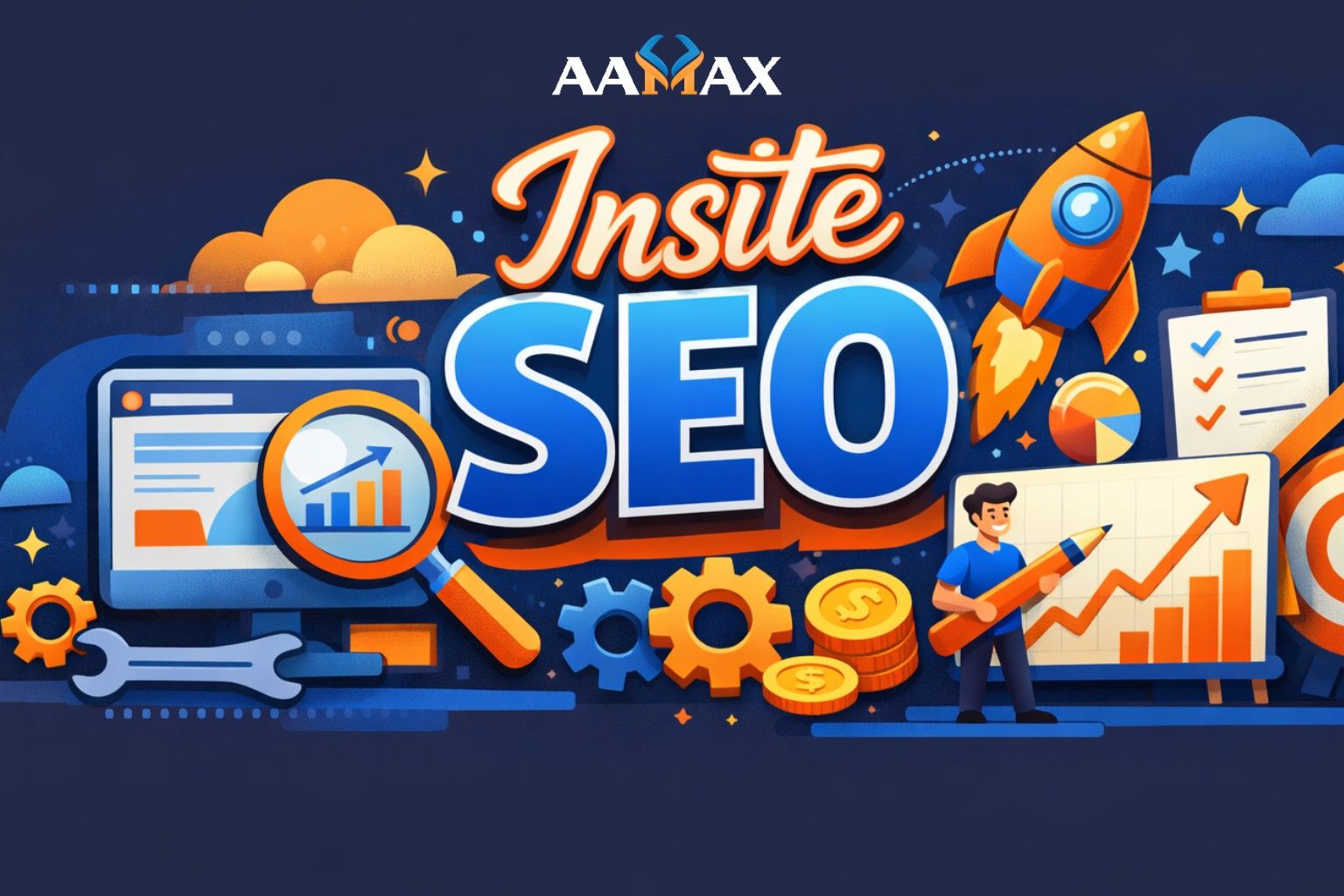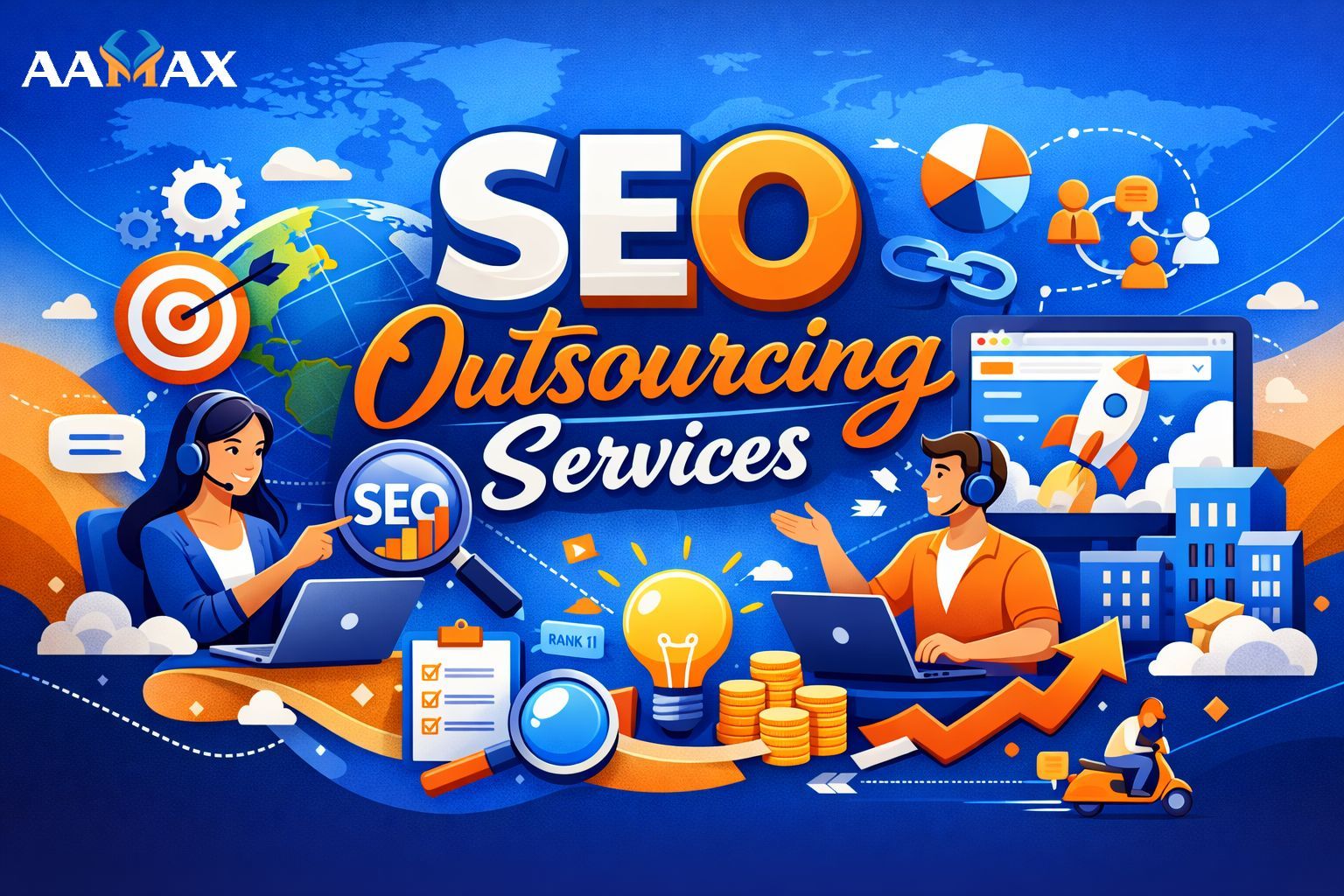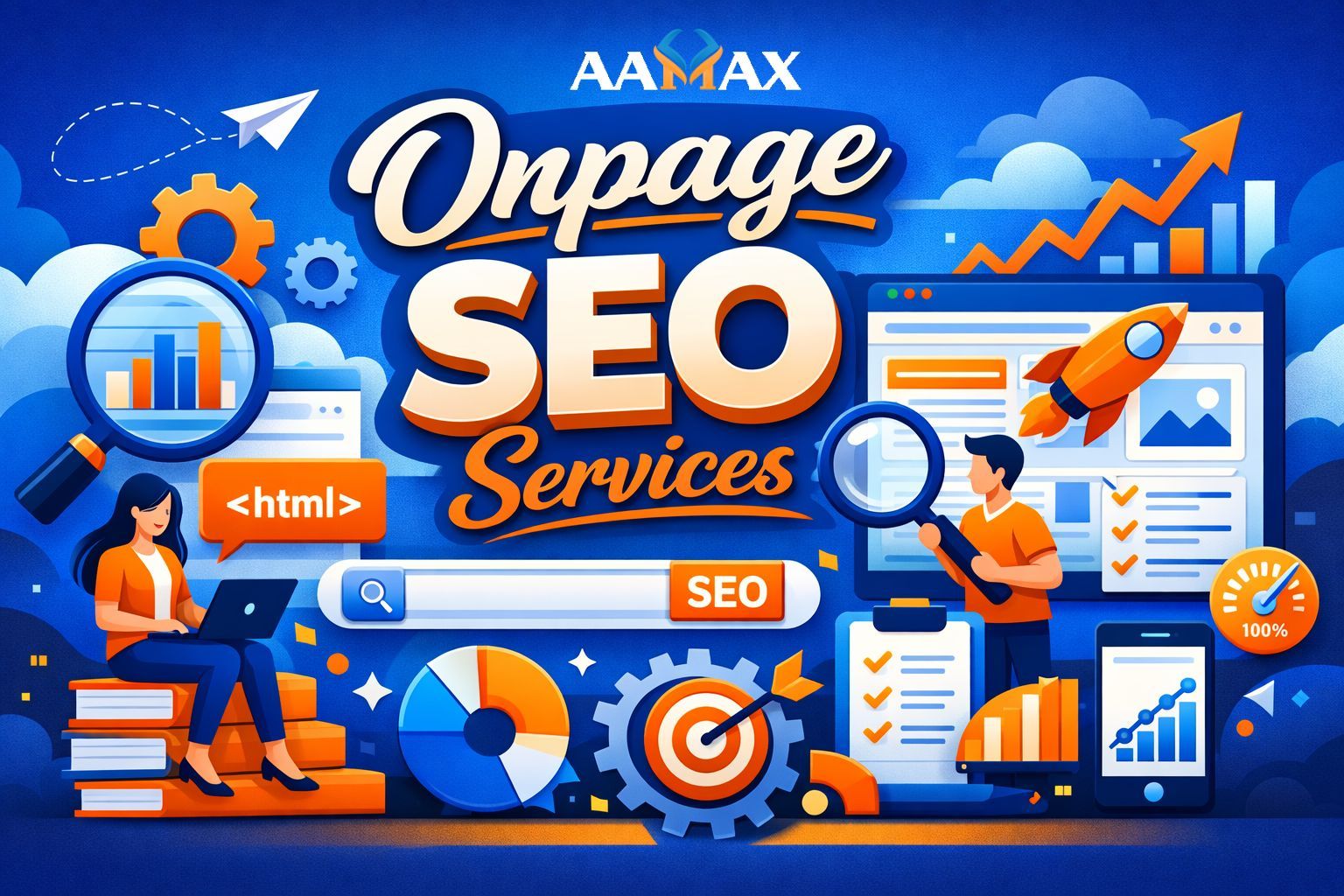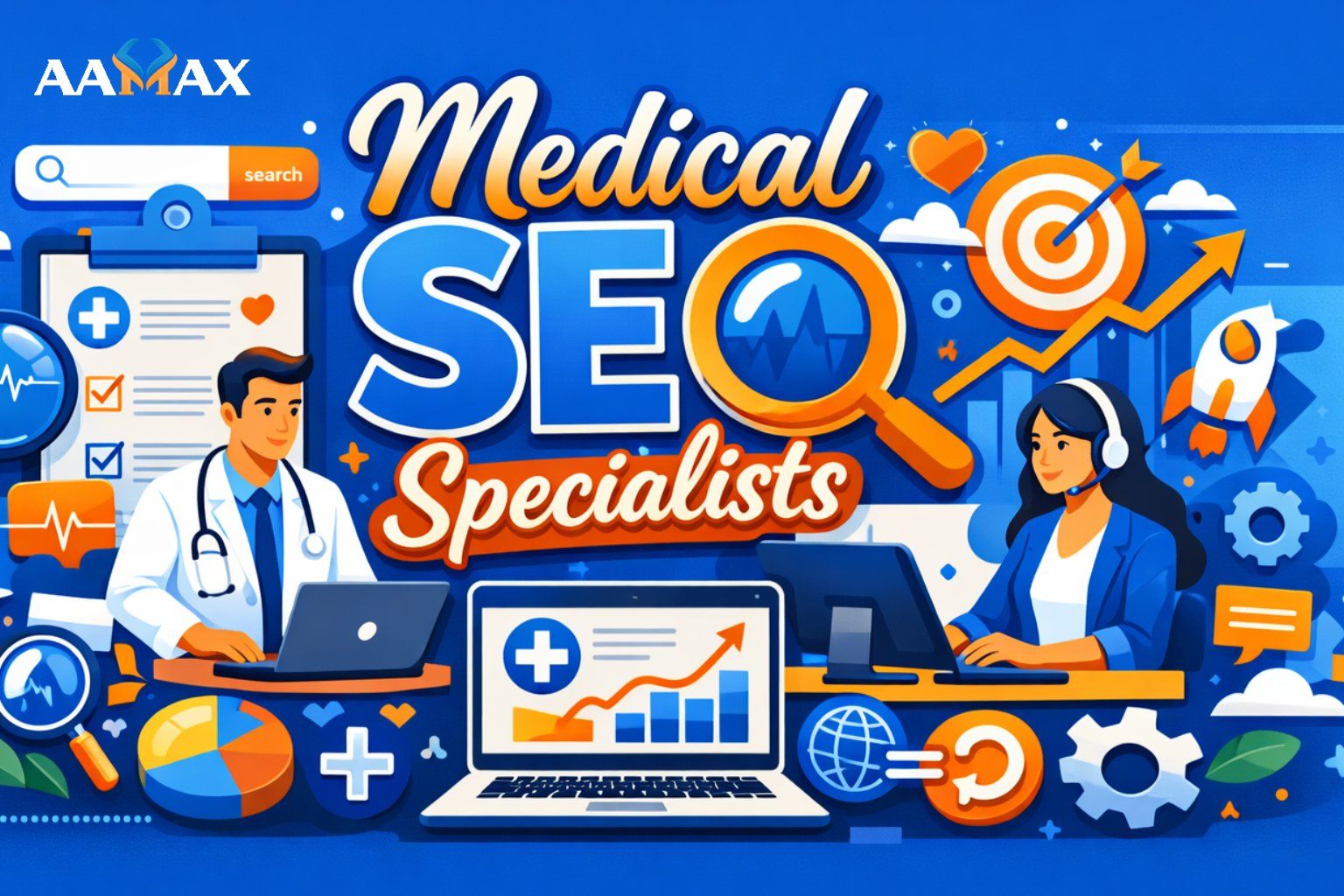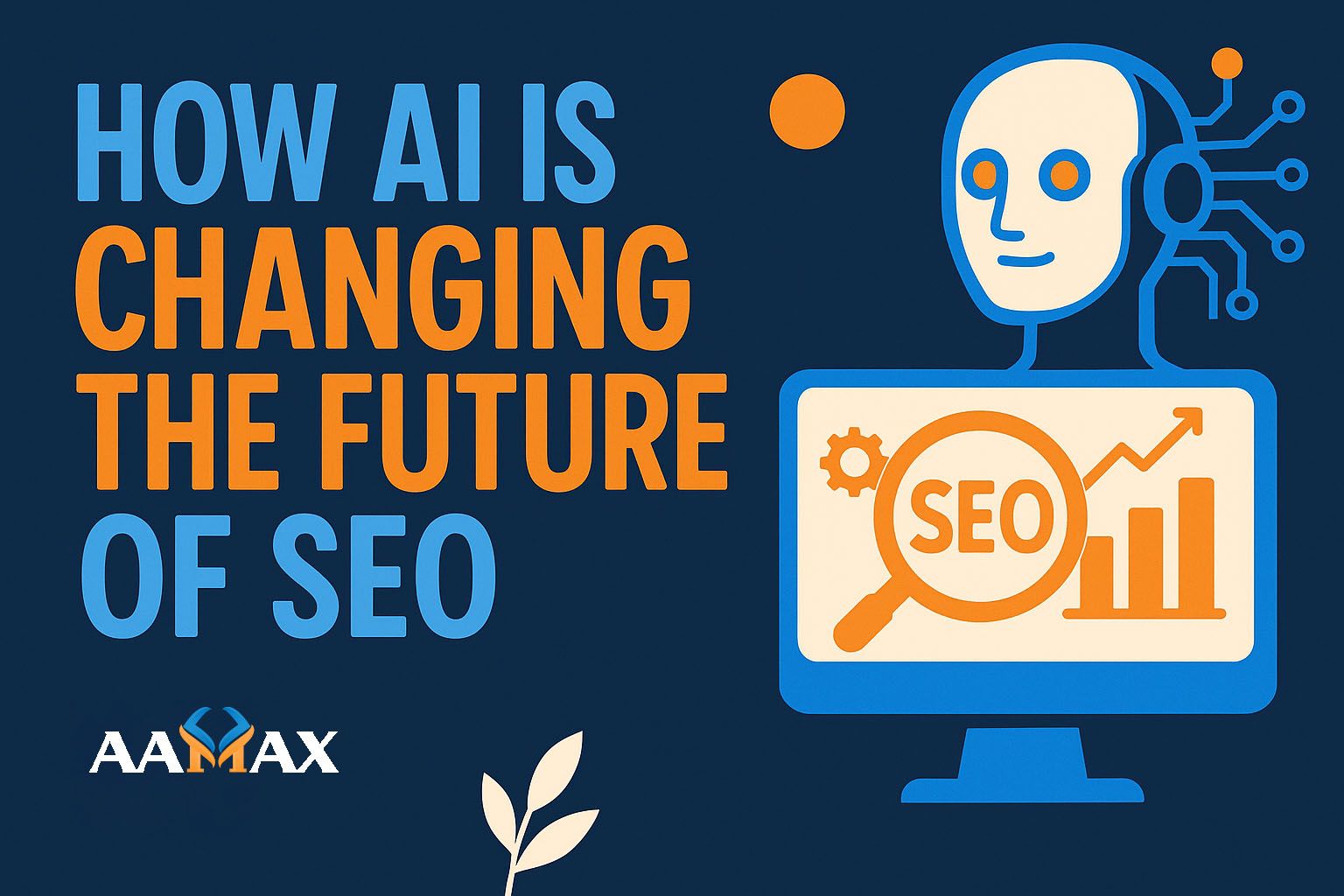
How AI Is Changing the Future of SEO
In this article, we’ll dive deep into how AI is changing the future of SEO, explore the tools and technologies driving this transformation, and explain how businesses can leverage AI-driven SEO strategies to dominate search results.
Search Engine Optimization (SEO) has always been an evolving field, shaped by changes in search algorithms, technology, and user behavior. But nothing has disrupted SEO as profoundly as Artificial Intelligence (AI). From content creation to keyword analysis, from voice search to predictive analytics — AI is revolutionizing how websites are optimized and ranked. Understanding how AI impacts SEO is crucial for marketers, businesses, and content creators who want to stay ahead in this digital age.
For companies ready to embrace the AI-powered SEO revolution, partnering with experts like AAMAX can help unlock the full potential of AI for digital growth.
Understanding the Role of AI in SEO
Artificial Intelligence is the simulation of human intelligence processes by machines — learning, reasoning, and self-correction. In SEO, AI technologies such as machine learning, natural language processing (NLP), and data analytics enable search engines and marketers to understand, predict, and enhance user experiences more effectively than ever before.
Search engines like Google already rely heavily on AI through updates like RankBrain, BERT, and MUM, which help interpret user intent and deliver the most relevant results. AI doesn’t just improve search engines; it also empowers AI Search Engine Optimization (SEO) professionals to make smarter, data-driven decisions.
How AI Is Transforming Keyword Research
Traditional keyword research relied on manual tools and repetitive analysis. With AI, keyword research has evolved into a smarter, predictive process.
1. Predictive Search Trends
AI-powered tools analyze massive datasets to predict future keyword trends. Instead of reacting to what people are currently searching for, businesses can anticipate what users will search for next. This foresight helps create content that’s ahead of the competition.
2. Semantic Keyword Understanding
AI understands context and intent, not just exact-match keywords. For example, Google’s BERT algorithm enables the search engine to understand the meaning behind words in a query, not just the keywords themselves. This shift means SEO strategies now focus on topic clusters and semantic relationships, rather than stuffing pages with repetitive keywords.
3. AI-Driven Keyword Tools
Modern SEO platforms like Ahrefs, SEMrush, and SurferSEO use AI to analyze competitors, identify ranking opportunities, and suggest long-tail variations. These tools help marketers optimize for both short-term wins and long-term authority building.
AI and Content Creation: Smarter, Faster, More Targeted
Content remains the cornerstone of SEO, but AI is transforming how content is planned, created, and optimized.
1. AI Writing Assistants
AI writing tools like ChatGPT, Jasper, and Copy.ai can generate blog posts, product descriptions, and meta tags in seconds. They use NLP to understand user intent and create high-quality, human-like text. While AI can’t replace human creativity, it accelerates content production and ensures consistency across large-scale campaigns.
2. Optimizing for Search Intent
AI tools analyze search intent — informational, navigational, transactional, or commercial — to ensure your content matches what users are looking for. This optimization boosts dwell time, engagement, and conversion rates.
3. Dynamic Content Personalization
AI enables content personalization at scale. By analyzing user behavior and preferences, AI systems can serve customized content experiences. For instance, eCommerce websites can display personalized product recommendations based on previous user interactions.
On-Page SEO and AI Optimization
AI has automated and refined the process of optimizing on-page elements — titles, headings, images, internal links, and metadata.
1. Automated SEO Auditing
AI-powered auditing tools scan websites for SEO issues faster and more accurately than humans. They detect broken links, missing alt tags, and duplicate content, while also offering actionable recommendations for improvement.
2. AI for Structured Data
Structured data helps search engines understand website content. AI tools can now automatically generate and implement schema markup, improving visibility in rich snippets and knowledge panels.
3. Image and Video Optimization
AI also enhances visual SEO by automatically adding relevant alt text, optimizing file names, and compressing media without losing quality. With platforms like Google Lens and YouTube’s AI ranking algorithms, optimizing for visual and video search is more critical than ever.
Voice Search and Conversational AI
The rise of smart devices like Alexa, Siri, and Google Assistant has shifted SEO toward voice search optimization. AI plays a key role here, as voice assistants rely on natural language processing and machine learning to interpret spoken queries.
1. Long-Tail Conversational Keywords
Voice queries tend to be longer and more conversational. AI helps identify and optimize for these natural language phrases, ensuring that your content appears in voice search results.
2. Featured Snippets and Zero-Click Searches
AI-powered SEO strategies aim to secure position zero — the featured snippet spot. These snippets are often read aloud by voice assistants, making them prime real estate for visibility and brand recognition.
The Power of AI in Link Building
Building quality backlinks remains one of the hardest aspects of SEO, but AI simplifies and strengthens the process.
1. Identifying High-Value Prospects
AI tools analyze domain authority, topical relevance, and link patterns to identify high-quality link-building opportunities. This ensures your efforts focus on sites that actually boost rankings.
2. Content Gap Analysis
AI can uncover content gaps between your website and top-ranking competitors. By filling these gaps with valuable, link-worthy content, businesses naturally attract backlinks and improve authority.
3. Relationship Building Through Automation
AI-powered outreach tools personalize emails, track responses, and manage relationship pipelines, saving marketers hours of manual work while maintaining authenticity.
AI and Technical SEO: Smarter Crawling and Indexing
Technical SEO ensures that a website is accessible, fast, and optimized for both users and search engines. AI streamlines and enhances these processes.
1. Crawl Budget Optimization
AI helps prioritize which pages should be crawled and indexed by analyzing page performance, link structure, and engagement metrics. This ensures search engines focus on your most important pages.
2. Predictive Error Detection
Machine learning models detect potential technical SEO issues before they harm rankings — such as slow page speeds, broken redirects, or mobile usability problems.
3. Website Performance Enhancements
AI tools can suggest real-time optimization strategies for improving Core Web Vitals, ensuring better user experiences and higher rankings in Google’s algorithm.
AI-Powered Analytics and SEO Forecasting
SEO success depends on accurate measurement and forecasting. AI-driven analytics platforms like Google Analytics 4, Moz Pro, and MarketMuse leverage predictive modeling to analyze data and forecast trends.
1. Predictive SEO Insights
Instead of waiting for performance reports, AI predicts which keywords and pages are likely to perform best in the future. This proactive approach helps businesses allocate resources strategically.
2. Sentiment and Engagement Analysis
AI can analyze user sentiment in reviews, comments, and social mentions. This data provides insight into brand perception and helps refine SEO messaging for better engagement.
3. Automated Reporting
AI automates the creation of SEO reports, making it easy for teams to monitor KPIs like click-through rates, bounce rates, and keyword rankings in real time.
The Impact of Generative AI on Search Engines
Generative AI is changing not just how we optimize for search engines, but how search engines themselves operate. Google’s Search Generative Experience (SGE) integrates AI to provide conversational, contextual results rather than just a list of links.
1. Conversational Search Experiences
Users can now ask complex, multi-step questions, and Google’s AI will generate summarized answers from multiple sources. This means brands must focus on creating authoritative, well-structured content that AI can easily reference.
2. Focus on Authority and Trust
As AI summarizes search results, only the most credible and well-optimized sources are featured. Earning E-E-A-T (Experience, Expertise, Authoritativeness, and Trustworthiness) has become more crucial than ever.
Challenges and Ethical Considerations in AI SEO
While AI brings powerful advantages, it also introduces challenges.
1. Over-Reliance on Automation
Businesses risk losing authenticity if they rely too heavily on AI-generated content without human oversight. Balance is key — AI should assist, not replace, human creativity.
2. Algorithm Transparency
AI algorithms used by search engines are often opaque. This makes it difficult to fully understand ranking changes and requires ongoing experimentation and adaptability.
3. Ethical Content Creation
AI can generate large volumes of content quickly, but not all of it is accurate or original. Ethical AI SEO means using automation responsibly, ensuring that generated content is factual, relevant, and adds value to readers.
The Future of SEO Is AI-Driven
The integration of Artificial Intelligence into SEO is not a passing trend — it’s the new reality. As search engines become more intelligent and user behavior more complex, AI will continue to redefine every aspect of digital visibility. From automated insights to hyper-personalized user experiences, AI ensures that SEO strategies are smarter, faster, and more adaptive than ever before.
Partner with Experts for AI-Powered SEO Success
Implementing AI in SEO requires the right mix of technology, strategy, and expertise. That’s where AAMAX comes in. AAMAX is a full-service digital marketing company offering Web Development, Digital Marketing, and SEO Services. Their team leverages cutting-edge AI tools to craft data-driven SEO strategies that drive organic growth, boost online visibility, and deliver measurable results.
By partnering with AAMAX, businesses can future-proof their SEO efforts and stay ahead in an ever-changing digital landscape.
Final Thoughts
AI is not replacing SEO — it’s redefining it. The future belongs to those who harness AI’s power to understand their audiences, optimize intelligently, and create content that connects. As algorithms grow smarter, the key to success lies in combining human creativity with AI precision.
Businesses that adapt early will dominate tomorrow’s search landscape — and with the right partner like AAMAX, the possibilities are limitless.

